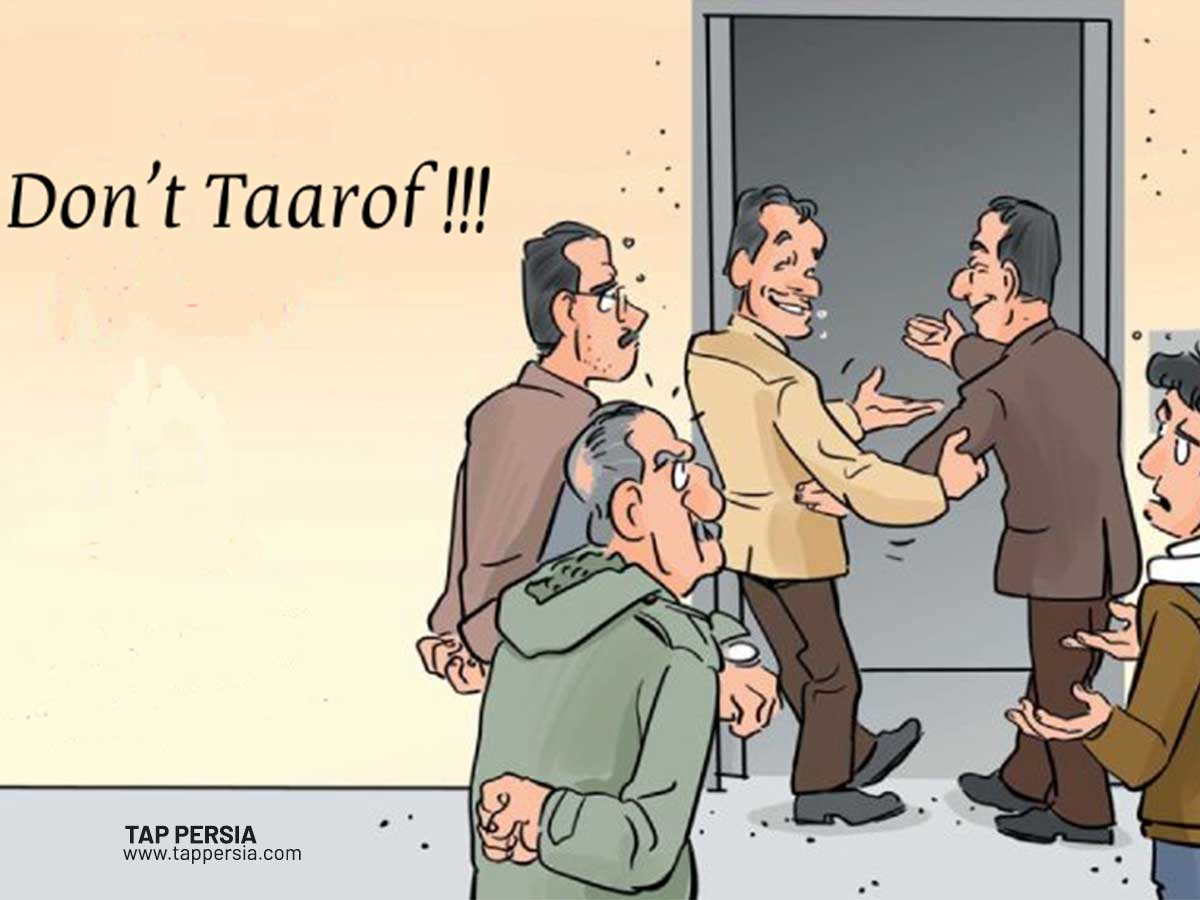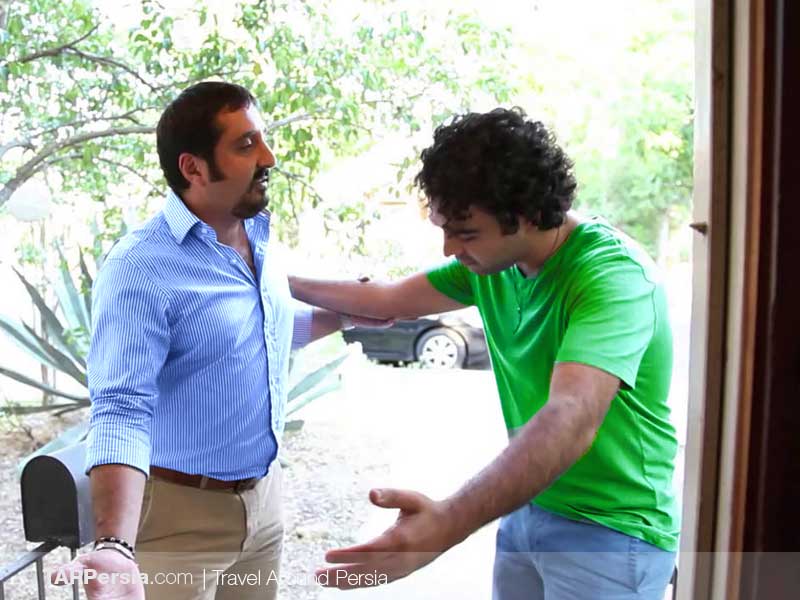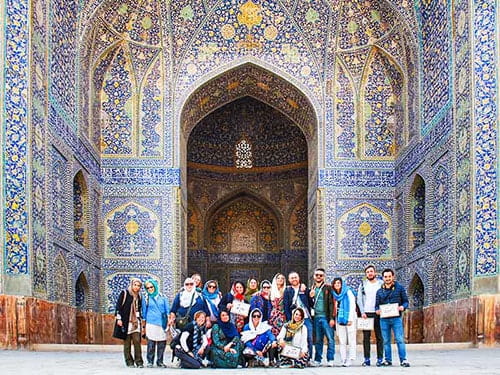here is no term used outside of Iran to define the Taarof ritual(Iran culture), which has its roots in the rich literature and culture of the Iranian people. This ritual, which permeates all facets of Iranian culture, is among the most crucial things to be aware of when visiting Iran.
Taarof is one of the most intricate “arts of social etiquette” of Iranians, according to foreign travelers. All civilizations have the same “social etiquette” pattern. Social etiquette is the set of acceptable speech and behavior guidelines that describe how someone should act and interact with others in a social setting. As a result, social manners are a form of interpersonal communication. Here is additional information on Taarof.
Understanding Taarof: An Essential Aspect of Persian Culture
Taarof is an essential aspect of Persian culture and foreigners may have a hard time understanding it. Let’s first talk about the definition of it and why it’s important in Persian culture:
What is Taarof?
Iranians display civility by using the Taarof symbol. People often say things with politeness but don’t actually mean them. As a result, when the waiter offers to be your host when you ask for the bill, he or she is only trying to be courteous and doesn’t have a crush on you.
Why is Taarof Important in Persian Culture?
Taarof is essentially Iranian manners. There is no model or substitute to use outside of Iran’s boundaries to define Taarof, one if the Iranian customs with origins in rich culture and Iranian etiquette.
This custom, which permeates every area of Iranian society, is regarded as one of the most crucial things to be aware of when visiting Iran.
The Roots of Taarof: A Historical Perspective
The significance of good words, good acts, and good thoughts in Zoroastrian ism is supposed to be the source of the name Taarof. According to certain political theorists, taarof governed diplomatic speech at princely courts throughout the time of serfdom. To make people, honor, and reputation calculable as tools for political success, required a tight restraint on one’s demeanor, speech, and action.
The embellishment of speech served as a mark of status for the feudal aristocracy. Communication grew more precise with the rise of capitalism and its scientific worldview, and the formality of taarof became a barrier to the goal of quick capital accumulation.

This custom of politeness dictates that, generally, whenever you are offered any food or drink at your host’s house, you start with a gentle “no, thank you.” Strangely enough, no matter how many times you say “no, thank you,” you will always be given a cup of tea, and it will also appear to magically keep refilling itself before your eyes as the night draws in. The same principle holds true for any meal or drink, including a bowl of fruit (side note: to avoid extra humiliation, practice peeling fruit before visiting an Iranian home) as well as a variety of dried fruit and trays full of Iranian sweets.
Another way that taarof appears is in the ostensibly kind manner that taxi drivers, store owners, baristas, waiters, and nearly every other form of service people will tell you that whatever service you just used or product you are going to buy is on the house and that you don’t need to worry about it. “Ghabeleh shoma ra nadareh” is a frequent expression that means “for you, it’s free.”
Lovely, huh? But don’t let this flattery fool you; you still have to pay. In Iranian culture, asking for money upfront without the other person providing it or insisting that you accept their money is considered impolite and may give the impression that you are being unkind and greedy. As a result, doing so is considered to be tarot. Similar events might occur at a restaurant over the bill. Everyone in the group will want to pay it as a show of thanks to the other participants.
After one or two meals, you could feel like you’ve lost the battle, but ultimately things will level out when you treat someone to a meal the next time, and vice versa.
Tarof can also appear in the form of a series of brilliant compliments that look too flattering and can sound strange and outlandish when translated into English. Therefore, it is most obviously not meant that someone will really kill themselves for you when they say “qurboonet beram.” In a similar vein, “moosh bokhoradet” means “you’re cute,” as opposed to the rather unsettling notion that a mouse will actually devour you!
Taarof Etiquette: How to Respond and Participate
At first, Taarof makes communication quite challenging. Don’t worry; there is an easy fix for this difficulty. While an Iranian invites you to anything, you should generally decline the first time to act correctly while facing Taarof. If it’s merely a kind gesture, it will end here; but, if you were asked again and declined the first time, you can be confident that the invitation is genuine and you will think about accepting it if it is repeated three times. Therefore, it is better to decline the first two invitations, and if you receive three invitations, make sure you are actually invited.
The Influence of Taarof on Persian Language and Literature
Some people think that the Persian language and literature’s supremacy and widespread use in Iran are to blame for the diversity and intricacy of compliments. The language of poets and courtiers, as intellectual and political elites, has gradually seeped into the minds and languages of the people of “Kuche Bazar” because the Persian language has a rich literary and poetic history and Iranian poets frequently served as eulogists and courtiers.
if you like to know more about famous Persian poets check out this article.
They contend that compared to earlier centuries, the severity of compliments has steadily lessened due to the gradual fall of classical literature in the present century and the emergence and growth of contemporary literature, which is based on a simpler language. The demanding and eulogizing language of classical Persian literature can be said to be a byproduct of social factors rather than its creator, despite the fact that this theory only addresses a portion of Iranian culture because poets and writers are influenced by social and political structures of the society far more than they are by those structures themselves.
Final Words
For visitors and foreign nationals, all of this could be a little perplexing. It is true that determining whether someone is “doing taarof” or not is not always simple. Taarof, however, is never about deceit or hypocrisy. On the contrary, it conveys admiration and gratitude for one another. Taarof is a robust and lovable social principle that reveals much about Iran and its inhabitants. And it somehow makes all these regular trades and transactions much sweeter!
What is An Example of Taarof?
The practice of asking strangers or distant relatives to dinner with the assumption that they will reject the invitation since it is “merely taarof” is an example of taarof.




It’s not only Iran. Afghans and Tajiks also have the custom of Taarof.